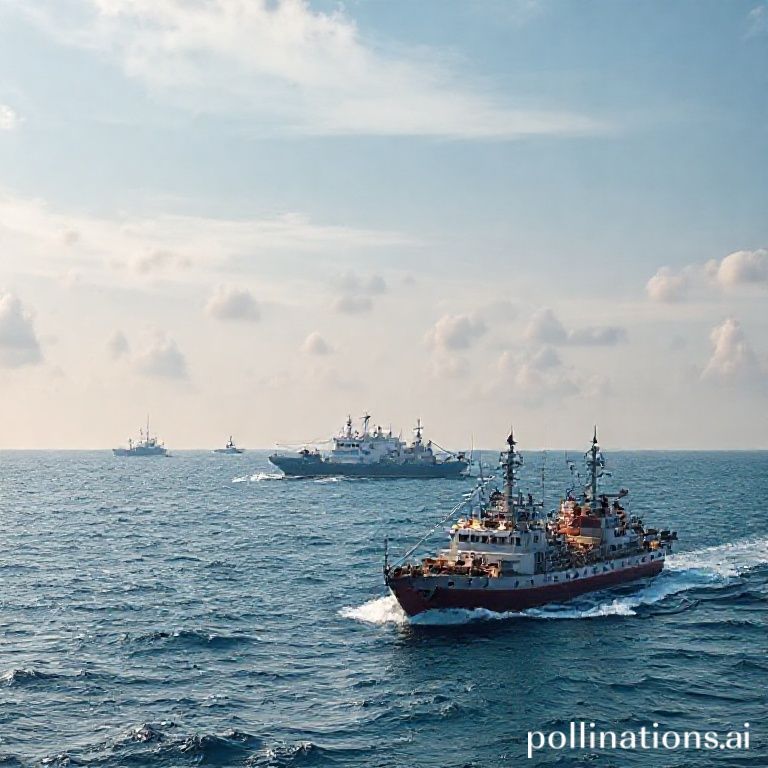
Colombo Security Conclave (CSC): A Key Maritime Grouping for UPSC GS Paper 2
AI News Desk
UPSC Research Desk
Introduction: What is the Colombo Security Conclave?
The Colombo Security Conclave (CSC) is a minilateral maritime security grouping of nations in the Indian Ocean Region (IOR). Initially established as a trilateral initiative between India, Sri Lanka, and the Maldives, it has since expanded to include more members and observers. The Conclave serves as a common platform for member nations to address shared security challenges, enhance maritime cooperation, and promote a safe, secure, and stable Indian Ocean.
Genesis and Evolution of the CSC
The origins of the CSC lie in a trilateral meeting on maritime security held in 2011 between India, Sri Lanka, and the Maldives. The primary objective was to forge cooperation among the Coast Guards of the three countries. However, the initiative became dormant after 2014 due to political shifts in the region, particularly in the Maldives.
Recognizing the growing strategic importance of the Indian Ocean and the need for renewed cooperation, India played a pivotal role in reviving the platform. In 2020, the dialogue was revived and formalized at the National Security Advisor (NSA) level, and the grouping was officially named the 'Colombo Security Conclave'. This revival marked a significant step towards institutionalizing the platform and broadening its scope beyond traditional maritime security.
Members and Observers
The structure of the Colombo Security Conclave has evolved to become more inclusive:
- Founding Members: India, Sri Lanka, and the Maldives.
- Full Member: Mauritius was added as the fourth full member in March 2022.
- Observer Nations: Bangladesh and Seychelles have been participating in meetings as observers, with potential for future membership.
Key Pillars and Objectives of the Conclave
The revived CSC operates on five key pillars of cooperation, which form the core of its agenda. These pillars are crucial for your UPSC answers:
- Maritime Safety and Security: This includes cooperation on search and rescue operations, joint surveillance, and tackling threats like piracy and armed robbery at sea.
- Countering Terrorism and Radicalization: Sharing intelligence and coordinating efforts to combat terrorism, terror financing, and the spread of extremist ideologies in the region.
- Combating Trafficking and Transnational Organized Crime: This focuses on tackling drug trafficking, human trafficking, arms smuggling, and other illegal activities that threaten regional stability.
- Cyber Security and Protection of Critical Infrastructure: Enhancing cooperation to defend against cyber-attacks, protect vital digital infrastructure, and secure communication networks.
- Humanitarian Assistance and Disaster Relief (HADR): Developing coordinated mechanisms for responding to natural disasters, environmental emergencies, and other humanitarian crises in the IOR.
Significance for India and the Indian Ocean Region
The CSC is a cornerstone of India's foreign policy in the Indian Ocean. Its significance can be understood through the following points:
- Alignment with SAGAR Doctrine: The Conclave is a practical manifestation of India's 'Security and Growth for All in the Region' (SAGAR) doctrine, which envisions India as a net security provider in the IOR.
- Countering China's Influence: As China increases its strategic and military presence in the Indian Ocean (often termed the 'String of Pearls' strategy), the CSC provides a regional, cooperative platform led by India to counterbalance this influence and ensure the IOR remains free, open, and inclusive.
- Strengthening 'Neighbourhood First' Policy: It deepens security cooperation with immediate maritime neighbours, building trust and strengthening bilateral ties with nations like Sri Lanka, Maldives, and Mauritius.
- Addressing Shared Non-Traditional Threats: The IOR is vulnerable to non-traditional security threats like piracy, smuggling, and illegal fishing (IUU). The CSC creates a framework for a coordinated response that individual nations cannot mount alone.
- Capacity Building: It allows India to share its expertise and resources to help smaller island nations enhance their maritime domain awareness and security capabilities.
Challenges Faced by the Conclave
Despite its potential, the CSC faces several challenges:
- Political Volatility: The domestic political situations in member countries can be unstable. For instance, past political shifts in the Maldives and the recent economic crisis in Sri Lanka can impact their level of engagement and commitment.
- China's Economic Leverage: Most member and observer nations have deep economic ties with China through initiatives like the Belt and Road Initiative (BRI). This creates a delicate balancing act for these countries between their security partnership with India and their economic dependence on China.
- Resource Constraints: Smaller nations like the Maldives and Seychelles have limited financial and military resources, which can restrict their ability to fully participate in joint exercises and operational initiatives.
- Defining a Clear Mandate: The CSC must avoid overlapping with the mandates of other regional organizations like the Indian Ocean Rim Association (IORA) and BIMSTEC to ensure its efforts are focused and effective.
Way Forward and Conclusion
The Colombo Security Conclave has emerged as a vital security-focused platform in the Indian Ocean architecture. To maximize its potential, the way forward should include institutionalizing its structure, perhaps with a permanent secretariat, to ensure continuity. Regular high-level meetings, joint military exercises, and robust intelligence-sharing protocols are essential to build interoperability and trust among member nations.
Ultimately, the CSC's success will depend on the sustained political will of its members to look beyond their differences and work collaboratively. For India, it is a crucial tool to reinforce its leadership role and work with its neighbours to shape a secure, stable, and prosperous Indian Ocean Region, free from coercion and external pressures. As an aspiring bureaucrat, understanding the nuances of such minilateral groupings is key to grasping the dynamics of contemporary international relations.
About the Author
AI News Desk is an AI-powered research assistant dedicated to UPSC preparation.


